
Producing over 40% of teachers in South Africa
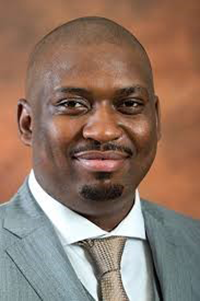
Buti Manamela (Deputy Minister: Higher Education, Science, and Technology) said in his keynote address that “as daunting as these challenges may be, they are not insurmountable, and because of our noble heritage of anti-colonial resistance, which has placed many of us in privileged positions today, each of us has a historical and moral obligation to form part of the national project to find solutions to these and other social ills”.
Unisa’s College of Education (CEDU) hosted its inaugural community engagement (CE) showcase event on 5 November 2020.
The primary purpose of CE is to create a healthy and empowering relationship between institutions of higher education (HE) and communities in order to capacitate and support communities in different skills for social cohesion.
The CE project teams of CEDU are servants of the national basic education system. They are bonded together with beneficiaries to ensure connectedness and solidarity in the rural and urban area communities they serve.
CEDU cares and believes that the prerequisite for social cohesion is quality partnerships that address gaps, divisions, and the things that tear us apart as communities and nations.
It is evident that universities have a dual role that requires a careful balancing act. On one hand we have a clear social (justice) responsibility, and on the other we have a clear legal mandate: Teaching and learning, research and innovation, and CE.
Professor Mandla Makhanya, Principal and Vice-Chancellor at Unisa, said, “Since CE remains unfunded, one finds that many universities do not prioritise it as core business. But I am of the view that our core mandate simply cannot be fragmented in such a manner. Our university’s vision and mission must reflect the sum of its parts. In other words, CE should be fully integrated as part of what we do, who we are and who we serve.”
He added that the “social and sustainability transformative dimension of teaching and learning focuses on the wellbeing of people and their right to an improved quality of life through quality education, as well as the notion of ‘responsible’ (global) citizenship.”
All CEDU academics include learning and insight from CE into their CEDU curriculums. Currently, there are 33 CE (research) projects taking place across the college. Collectively, Unisa’s colleges are putting their knowledge and diverse talents to work through a range of innovative and socially responsive projects.
Buti Kgwaridi Manamela, Deputy Minister of Higher Education, Science, and Technology, explained that CE projects should be able to strengthen social cohesion. The projects should seek to:
In his keynote address, Manamela said that “as daunting as these challenges may be, they are not insurmountable, and because of our noble heritage of anti-colonial resistance, which has placed many of us in privileged positions today, each of us has a historical and moral obligation to form part of the national project to find solutions to these and other social ills”.
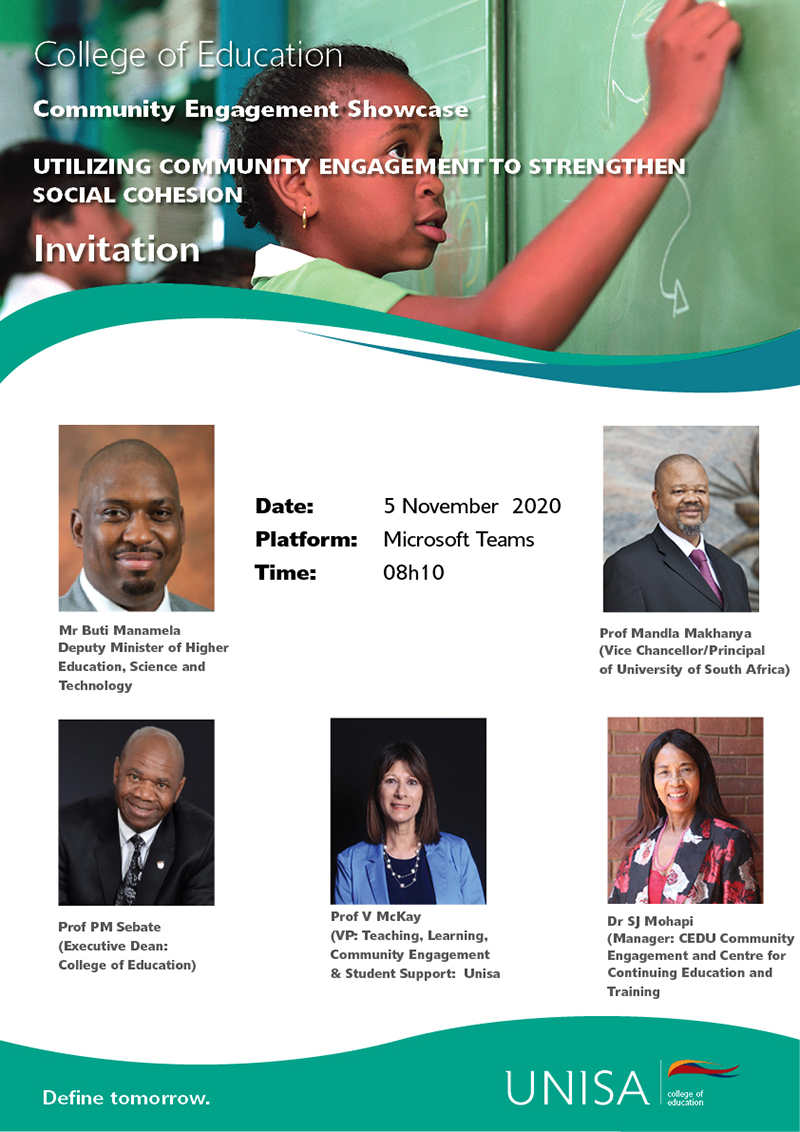
The lockdowns in response to the pandemic have disturbed normal CE. But what happens when on-site engagement is suspended due to the Covid -19 outbreak?
The educational community has made intensive efforts to maintain learning continuity during this period. The challenge was to reconfigure CE to a remote learning and engagement experience for beneficiaries.
The general sentiment during the showcase by CEDU project leaders was that the advantage of being an open distance e-learning (ODeL) institution worked in their favour. They described how they were able to use a variety of multimedia resources, such as MS Teams meetings, video sharing, audio, reading, and interactive content, such as the Google Classroom.
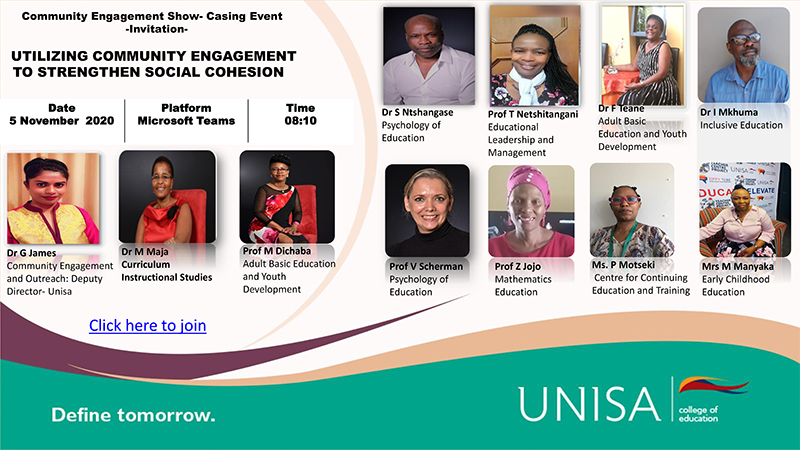
From 14 to 18 September 2020, Dr Margaret Maja, a senior lecturer at the Department of Instructional Studies, went to Serokolo Senyane Primary School, in Malemang Village in the Mogodumo Circuit, in Lebowakgomo, in order to continue with her interventions to assist learners and educators. Her passion for classroom interaction pedagogy (CIP) in teaching English First Additional Language (EFAL) in the Intermediate Phase (grades 4, 5, 6, and 7) is unstoppable.
Professor Zingiswa Jojo, Associate Professor at the CEDU Department of Mathematics Education, explained that, in collaboration with the Eastern Cape Department of Education, maths educators were not only issued with laptops but have since acquired the scarce skill of typing Mathematics question papers.
CE is a reciprocal process that entails leveraging institutional knowledge and skills to the benefit of communities while simultaneously improving teaching learning and research. It is a beautiful flow of knowledge and strong mutually beneficial partnerships.
Dr Genevieve James, Deputy Director of Community Engagement and Outreach at Unisa, said in her closing remarks that “the very roots of the word education mean to raise up, to lift out of”. She further declared that education was a noble enterprise by explaining there cannot be a true form of liberation without education.
James added that the work of CEDU scholars promotes social justice, by creating just relationships, developing structures that provide for equality of opportunity and the facilitation of access to needed information, services, and resources.
*By Dineo Horner, Acting Communication and Marketing Specialist, College of Education
Publish date: 2020-11-12 00:00:00.0
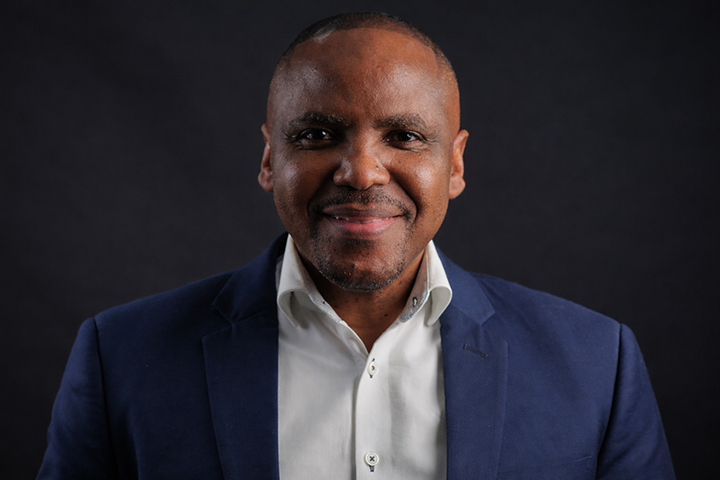 National leader in mathematics education aims to improve outcomes
National leader in mathematics education aims to improve outcomes
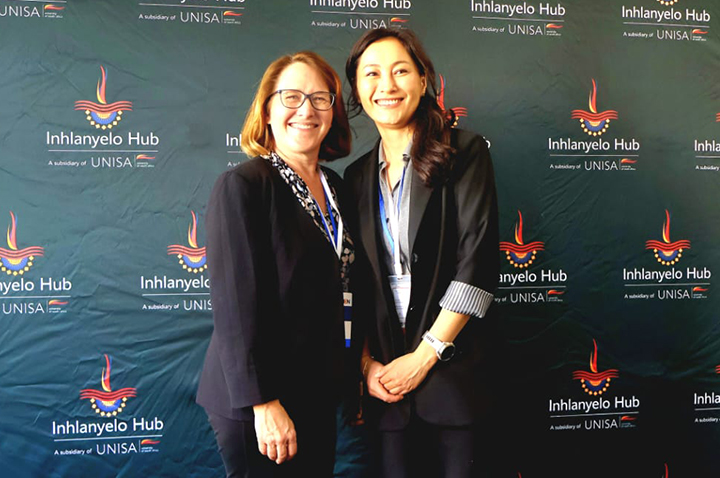 Unisa roundtable focuses on empowering SA women to lead in innovation
Unisa roundtable focuses on empowering SA women to lead in innovation
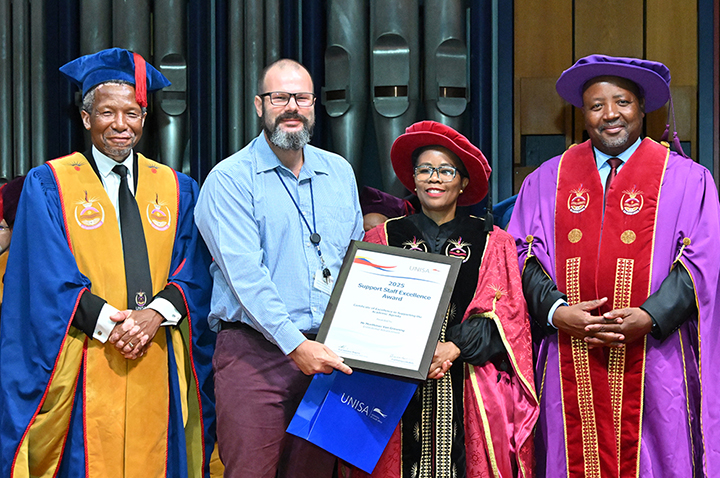 Unisan recognised for web excellence
Unisan recognised for web excellence
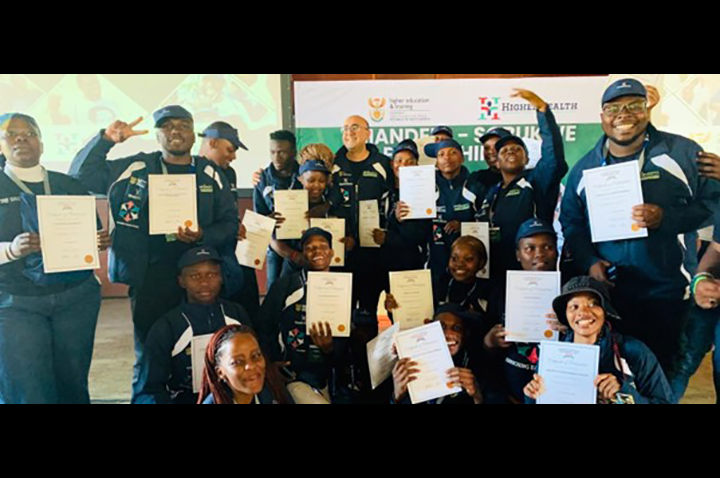 Office of the Dean of Students participates in leadership camp
Office of the Dean of Students participates in leadership camp
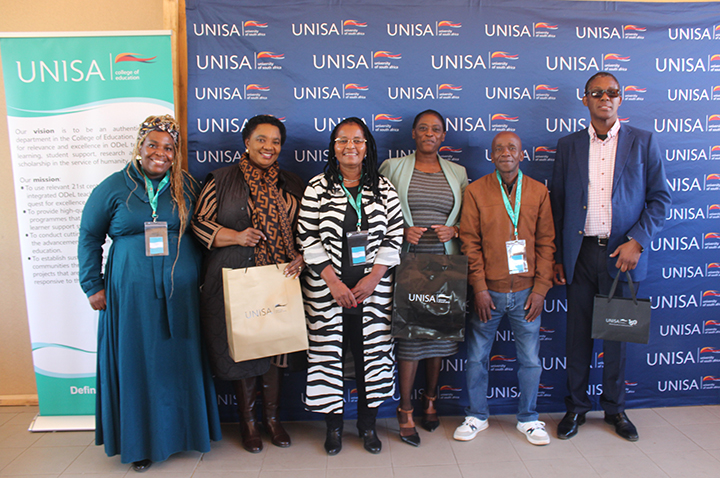 Unisa project fosters digital and pedagogical innovation in Limpopo schools
Unisa project fosters digital and pedagogical innovation in Limpopo schools